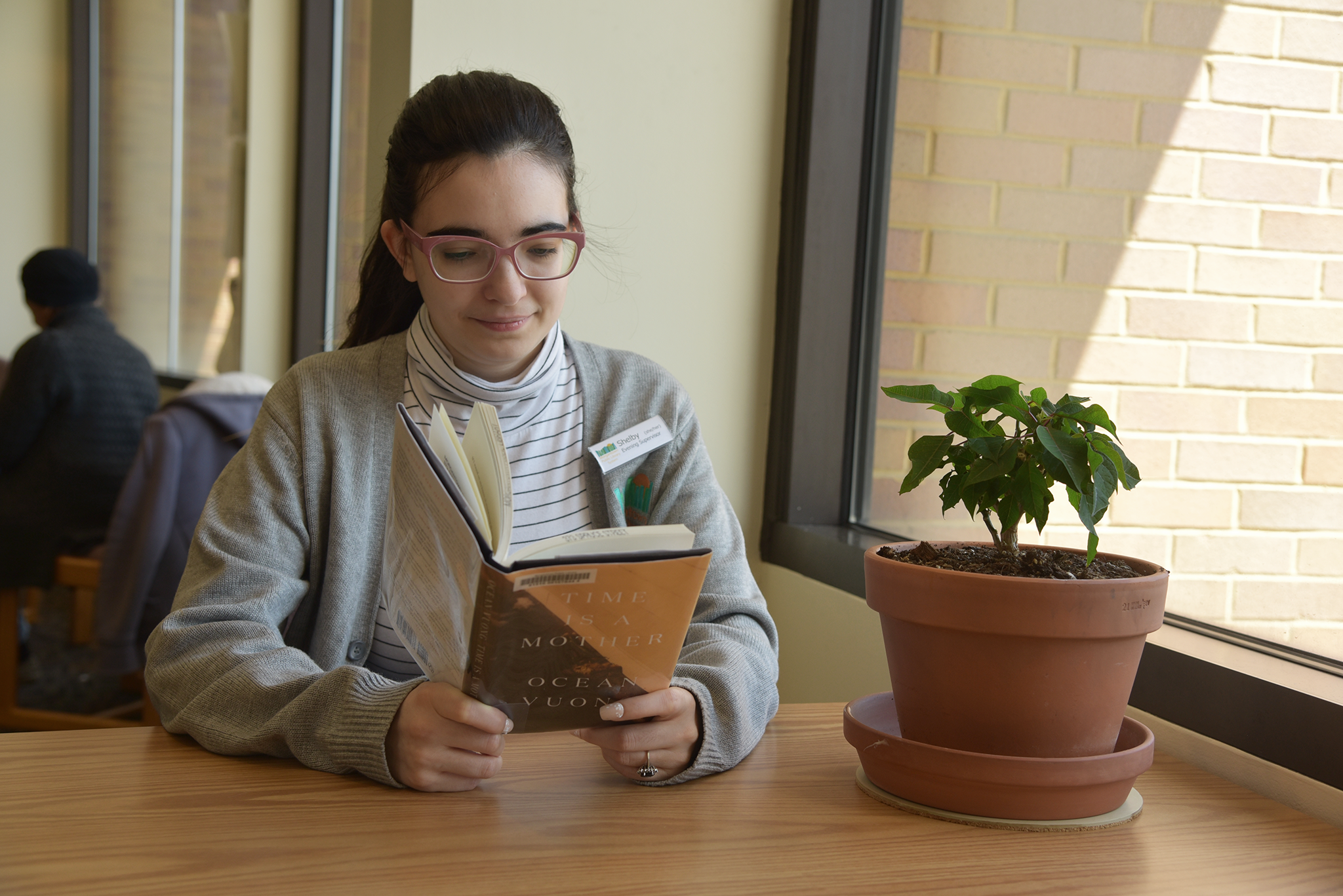Fiction 101: Poetry

The (Not-Tortured) Poetry Blog
by Shelby D., Evening Supervisor
Welcome back to Fiction 101! Fiction 101 is our monthly blog where we talk about different book genres — we’ll provide an overview of the style and some book recommendations to go along with it to jumpstart your own exploration of the genre. This month’s Fiction 101 theme is poetry to celebrate National Poetry Month (and the release of Taylor Swift’s The Tortured Poets Department album)!
Poets use different forms to help convey their message, which leads to many different types of poetry. One popular style is free verse which often follows patterns of speech rather than a set meter (meter is a pattern of stressed and unstressed syllables). An example of free verse poetry is E.E. Cummings “[i carry your heart with me(i carry it in],” which is one of my personal favorite poems.
Sonnets are another prominent form of poetry — this style is characterized by having 14 lines and follows a specific meter. For example, sonnets typically focus on a specific theme or idea that is usually resolved at the end after the poetic turn, or volta. You might recognize this famous Sonnet (below) by William Shakespeare — check out the rhyming pattern! Shakespearean sonnets have a rhyming scheme of ABAB CDCD EFEF GG and are most commonly written in iambic pentameter (lines of ten syllables with five metrical feet of unstressed and stressed syllables).
Shall I compare thee to a summer’s day? (A)
Thou art more lovely and more temperate: (B)
Rough winds do shake the darling buds of May, (A)
And summer’s lease hath all too short a date; (B)
Sometime too hot the eye of heaven shines, (C)
And often is his gold complexion dimm'd; (D)
And every fair from fair sometime declines, (C)
By chance or nature’s changing course untrimm'd; (D)
But thy eternal summer shall not fade, (E)
Nor lose possession of that fair thou ow’st; (F)
Nor shall death brag thou wander’st in his shade, (E)
When in eternal lines to time thou grow’st: (F)
So long as men can breathe or eyes can see, (G)
So long lives this, and this gives life to thee. (G)
Another form of poem, an epic, is a story told in poem form like the Epic of Gilgamesh and Beowulf. These are lengthy tales that center on mythical and/or historical figures.
These are only a few different forms of poems, there are a lot more to explore. Here are some book recommendations that feature a variety of poetic styles.
- The Odyssey by Homer. Translated by Emily Wilson
One of the world’s most famous epics is The Odyssey by Homer. Homer was a revered poet in Ancient Greece. Homer’s identity is debated, even down to whether or not The Iliad (the prequel to The Odyssey) and The Odyssey were authored by the same person. Emily Wilson is the first woman to publish a translation of The Odyssey. She focused on keeping the cadence and meter of Homer’s work while translating.
- 100 Selected Poems by E.E. Cummings
E. E. (Edward Estlin) Cummings (1894-1962) was an American poet, author, and painter. He wrote free verse poetry and disregarded many established rules of poetry and writing.
- Selected Poems of Langston Hughes by Langston Hughes
Langston Hughes (1901-1967) was an American poet, playwright, and novelist. His poetry is considered one of the earliest (if not the first) instances of jazz poetry, poetry inspired by the sounds and rhythms of jazz. His poems focus on his life and Black American culture in the early to mid 1900s.
- The Complete Poetry by Maya Angelou
Maya Angelou (1928-2014) was a renowned American writer, poet, and speaker. She was a civil rights activist. One of her most famous works is “I Know Why the Caged Bird Sings.” A lot of her writing is autobiographical and discusses themes of racism and identity.
- Time Is A Mother by Ocean Vuong
Ocean Vuong is a Vietnamese American author and poet. His book On Earth We’re Briefly Gorgeous is a lyrical and heartbreaking autobiographical novel. He writes about love and loss and identity.